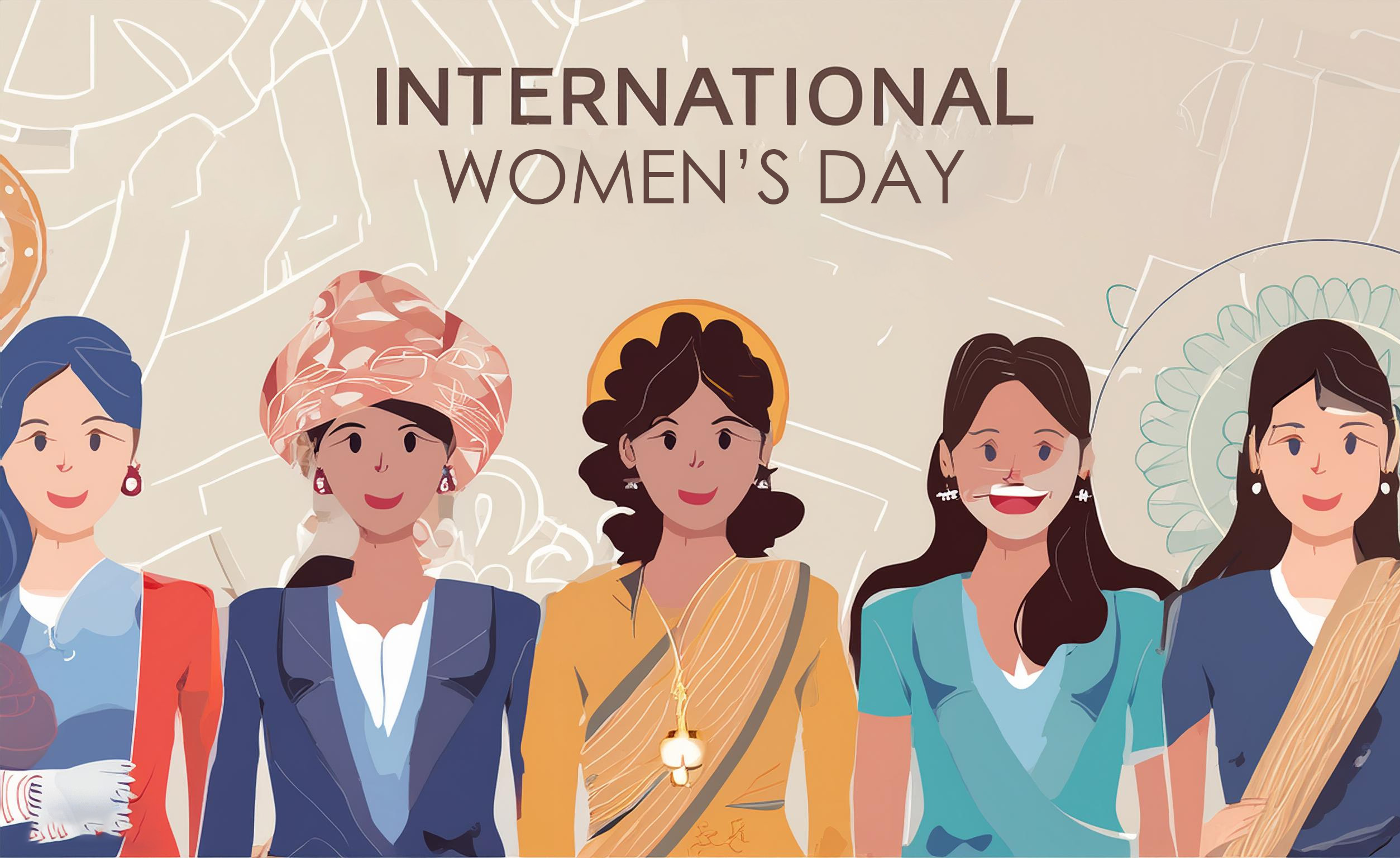The world’s first organised large-scale agitation by women for achieving their legitimate rights occurred in February 1908 in New York. A large gathering of 15000 women textile and garment workers, suffering horrific working conditions, endless hours of work and low pay, took to the streets demanding shorter working hours, better pay, end of child labour and the right to vote. Though the police attacked and dispersed them, the women continued their agitation, and the first women’s labour unions were established. The slogan “Bread and Roses” emerged with bread symbolising economic security and roses for better living conditions.
The Socialist Party of America decided to pursue women’s rights and they started observing National Women’s Day on the last Sunday of February every year.
In 1910, the second international conference of working women was held in Copenhagen. In that meeting, Clara Zetkin, the leader of the Social Democratic Party of Germany made a proposal to celebrate the International Women’s Day every year. In terms of her suggestion, four European countries – Austria, Denmark, Germany, and Switzerland started observing International Women’s Day on February 23 every year. Russia joined this event in 1913 and a few other countries also joined subsequently. Thus, the observance of International Women’s Day started spreading to more countries.
In 1914, a grand meeting was organised at Trafalgar Square London to press the demand for women’s suffrage. Sylvia Pankhurst, the most prominent women’s rights activist, and the advocate of women’s suffrage was the main speaker. The police arrested Sylvia under the infamous ‘Cat and Mouse Act’ and prevented her from participating in the meeting. This blatant attack on women’s rights occurred on March 08.
Another epoch-making event took place in Russia on March 08, 1917. A large gathering of 100,000 women paraded the prominent streets of Russia’s capital Petrograd shouting slogans against the ruling Czar. The police acted and attacked the protestors. However, the protest continued the following day with a whooping participation of 150000 women. It was the commencement of the Russian revolution. Indeed, the revolution was kindled by women.
The various issues of women were discussed and debated in many world forums including the United Nations in later years. The U N celebrated 1975 as the International Women’s Year. In that year, the U N also decided to celebrate the International Women’s Day on March 08, every year. March 08 was selected as a tribute to the women’s uprising in Russia and of the various women’s agitations that took place in many countries including the arrest of Sylvia Pankhurst on a March 08.
Clara Zetkin
Clara Zetkin (1857 – 1933) was Germany’s most important leader of the socialist movement in the late nineteenth and early twentieth centuries. Her thrust in improving the lots of working women is acclaimed throughout the world. She was not just a feminist in the ordinary sense. She took it as a socioeconomic issue and worked for political and economic reforms for women and men alike.
Born as Clara Eissner she was educated at the Leipzig Teachers’ College for Women. Even as a student, she established contacts with the Social Democratic Party and rose to become its leader. She also had close association with Russian revolutionaries. She married another revolutionary, Ossip Zetkin and spent most of her life in exile in Switzerland and Paris. There she wrote and distributed political literature and met many leading international socialists.
In 1889, Clara actively involved in founding the congress of the Second Socialist International. Then she returned to Germany and edited the Socialist women’s paper ‘Equality’ for five years.
She had close friendship with Lenin and the revolutionary writer and activist Rosa Luxemburg. In association with them, she organised the first international women’s conference against World War I in 1915 at Bern. Afterwards she lived in Moscow. Following Lenin’s death in 1924 her influence started dwindling and she died in Moscow in 1933. Her “Selected Speeches and Writings” were published in three volumes between 1957 to 1960.
Zetkin had been involved in the socialist movement in Germany since the 1870s. She was also a fervent campaigner for women’s rights and universal suffrage. She was well known throughout her career for her passionate oratory skills.
Zetkin spent much of her career as a political figure in Germany educating women to get them politically involved so that they could support the socialist cause. She was involved in organising trade unions, editing the socialist women’s magazine Gleichheit (Equality), and recruiting members to the largest socialist political party in Europe at that time, the Social Democratic Party of Germany (SPD).
Her political standing in Germany was significant, especially at a time when the Law of Association banned women from participating in political activities until 1908. Zetkin also left her mark internationally with her role in founding the International Women’s Day. Clara Zetkin is an important figure in the history of both socialism and feminism for her devotion to the class struggle and her activism concerning women’s rights.
Zetkin also played an important role in the founding of International Women’s Day. It was Zetkin who suggested an international holiday in honour of the fight for women’s rights at the International Socialist Women’s Conference in Copenhagen, 1910. Clara Zetkin’s commitment to socialism and her activism for women’s rights make her a remarkable figure in history.
G.B.Sharma



